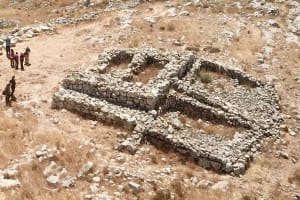Iran says former Hamas head Haniyeh killed by missile that tracked his cellphone

Ali Mohammad Naini, the spokesperson for Iran’s Islamic Revolutionary Guards Corps (IRGC), on Sunday announced that the former Hamas leader Ismail Haniyeh was killed by a missile that tracked his cellphone.
“The assassination of the martyr Ismail Haniyeh did not involve any act of sabotage,” Naini stated. “A missile was fired from a certain distance and struck the window directly, hitting him while he was on a phone call from the same direction the missile came from,” the IRGC official claimed.
Haniyeh was eliminated in July 2024 in Tehran while he was a guest of the Iranian regime and attended the swearing-in of the newly elected Iranian President Masoud Pezeshkian. While Israel is widely believed to be behind the assassination of Haniyeh, there have been intense speculations concerning the circumstances of his death.
In August 2024, the New York Times reported that Haniyeh had been killed by a bomb that had been hidden in advance in his room, which was located in a supposedly well-protected Iranian regime safe house. If accurate, this would suggest that Israeli intelligence agencies had succeeded in penetrating the Iranian regime’s IRGC, which was responsible for the late Hamas leader’s security.
The ayatollah regime was embarrassed by Haniyeh’s death in the Iranian capital. The Iranian regime consequently quickly spread the missile strike story. However, the former IDF former spokesman Brig.-Gen. Daniel Hagari indirectly rejected the missile strike story by stating that “no additional air strike” was carried out at the time when Israel eliminated top Hezbollah commander Shukr in Lebanon merely hours before Haniyeh was killed in Iran. Without elaborating, Hagari argued at the time that there was “not a missile nor an Israeli unmanned aerial vehicle in the entire Middle East that night.”
In December 2024, Defense Minister Israel Katz officially admitted that Israel had carried out the elimination of Haniyeh in Tehran.
While quickly blaming Israel, the Iranian regime refrained at the time to respond against it. Addressing the issue on Sunday, the IRGC spokesperson argued that Tehran’s national security council “concluded that there must be a definitive response. The timing of the retaliation was left to the military command.”
In early October 2024, Iran launched a large ballistic missile attack against Israel. The Iranian attack, which was largely intercepted by Israel and its allies’ aerial defenses, came merely days after the Israeli Air Force killed Hezbollah’s top commander Hassan Nasrallah in Beirut. Multiple top Hezbollah leaders and at least one Iranian general were also killed in the Israeli strike that killed Nasrallah and devastated Hezbollah’s subterranean headquarters in Beirut’s southern Dahieh suburb.
On Oct. 26, 2024, Israel responded to the Iranian missile attack by targeting Iran’s aerial defenses.
In June, Israel launched Operation Rising Lion, a large-scale military offensive that severely degraded the Iranian regime’s nuclear and ballistic missile capabilities, which threatened the Jewish state’s national security.
“Two weeks ago, on the night leading into Friday, the State of Israel launched Operation ‘Rising Lion’ to remove the existential threat from Iran to the State of Israel,” IDF Spokesman Brig.-Gen. Effie Defrin stated after the conclusion of the Israeli military offensive against Iran.
Israel also succeeded in severely weakening Iran’s military leadership by eliminating more than 20 top Iranian military leaders including (IRGC) Commander Hossein Salami, the commander of Iran’s military forces Major General Mohammad Bagheri and IRGC Air Force commander, Brig.-Gen. Amir Ali Hajizadeh.

The All Israel News Staff is a team of journalists in Israel.
You might also like to read this:

















